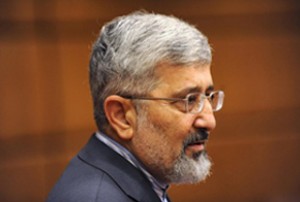Iran won’t give up nuclear rights

As a signatory to the Nuclear Non-Proliferation Treaty (NPT), Iran has once again highlighted its indisputable right to peaceful nuclear knowhow.
“Iran will not compromise on its inalienable rights under the NPT and the IAEA’s Articles of Association”, Iranian Ambassador to the IAEA Ali Asghar Soltanieh said in a speech to the agency’s Board of Governors in Vienna on Wednesday.
At the same time, he added, Iran will continue its cooperation with the UN nuclear watchdog.
Soltanieh further said Iran has not denied IAEA inspectors access to its nuclear facilities, nor has it withdrawn from the NPT, despite the unfair approach adopted by the UN Security Council vis-à-vis the country.
“Iran will not allow the few nuclear-armed countries on the UN Security Council to use their right of veto to let New York dictate to the IAEA what it should do”, added the Iranian permanent representative to the UN nuclear agency.
Soltanieh reiterated that IAEA reports on Iran have all verified that there has been no diversion in the nation’s peaceful nuclear activities.
He said the UN Security Council’s illegal intervention has politicized and further complicated a ‘technical issue’ which falls within the jurisdiction of the IAEA.
He called on the few Western countries which ‘always politicize and polarize the IAEA’ to change their approach from confrontation to cooperation.







